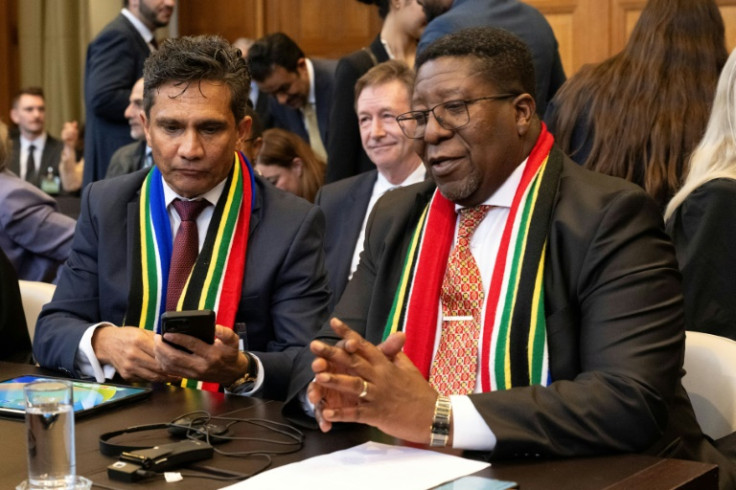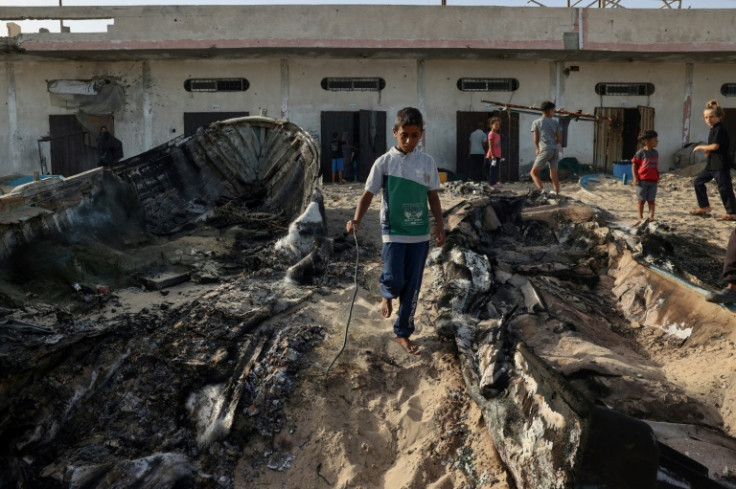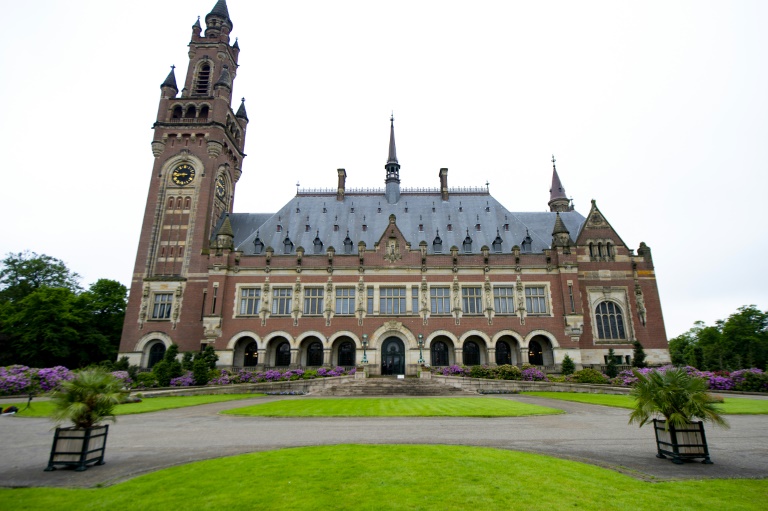The top United Nations court Friday ordered Israel to halt military operations in Rafah, a landmark ruling likely to increase mounting international pressure on Israel more than seven months into the Gaza war.
Israel must “immediately halt its military offensive, and any other action in the Rafah Governorate, which may inflict on the Palestinian group in Gaza conditions of life that could bring about its physical destruction in whole or in part,” the International Court of Justice said.
It also ordered Israel to keep open the Rafah crossing into Gaza for the “unhindered” provision of humanitarian aid.
ICJ rulings are legally binding but the court has no concrete means to enforce them. For example, it ordered Russia to halt its invasion of Ukraine, to no avail.
Israel had argued before the court that an order to stop military activity would give free rein to Hamas extremists and prevent its army from rescuing hostages taken in the group’s brutal October 7 attack.
The ICJ ruling comes hot on the heels of another highly charged decision Monday by the International Criminal Court prosecutor to seek arrest warrants for top Israeli and Hamas leaders.
Prosecutor Karim Khan alleged that senior Israeli leaders, including Prime Minister Benjamin Netanyahu, plus top Hamas officials, were guilty of war crimes and crimes against humanity related to the war in Gaza and the October 7 attack.
South Africa brought the case before the ICJ last year alleging that Israel’s Gaza offensive breached the 1948 UN Genocide Convention — a charge strongly denied by Israel.
In a ruling on January 26 that made headlines worldwide, the ICJ ordered Israel to do everything it could to prevent acts of genocide during its military operation in Gaza.
But South Africa has since returned several times to the ICJ arguing that the dire humanitarian situation in Gaza compels the court to issue further fresh emergency measures.
The court did so in March, ordering new measures compelling Israel to ensure the “unhindered provision at scale” of humanitarian aid.
In public hearings last week, South Africa’s ambassador Vusimuzi Madonsela alleged that “Israel’s genocide has continued apace and has just reached a new and horrific stage”.
“Although the present application was triggered by the unfolding situation in Rafah, Israel’s genocidal onslaught across Gaza has intensified over the past few days, also warranting the attention of this court,” he said.
South Africa argued the only way to enable humanitarian aid in to ease the crisis in Gaza was a full halt to Israel’s military operations.
The court will take months if not years to rule on the broader South African genocide case but it can order urgent measures while weighing its decision.
Israel retorted that South Africa’s case was an “obscene exploitation of the most sacred convention” and the picture Pretoria paints to the court was “completely divorced from the facts and circumstances.”
“It makes a mockery of the heinous charge of genocide,” said top Israel lawyer Gilad Noam at hearings.
“Calling something a genocide, again and again, does not make it genocide. Repeating a lie does not make it true,” he added.
Israel also said it was “acutely aware” of the suffering of civilians in the Gaza Strip and that it has made “extensive efforts” to increase humanitarian aid flowing.
US President Joe Biden said this week that “what’s happening is not genocide.”
Israel said Thursday it was ready to resume stalled talks on a truce and hostage release deal with Hamas, as Netanyahu faces growing domestic pressure to secure their freedom.
US intelligence chief Bill Burns is expected to meet Israeli representatives in Paris to relaunch negotiations, according to a Western source close to the issue.
Previous talks in Cairo and Doha attended by Qatar and Egypt as mediators for Hamas broke up earlier this month.
The Gaza war broke out after Hamas’s unprecedented attack on October 7 resulted in the deaths of more than 1,170 people, mostly civilians, according to an AFP tally of Israeli official figures.
Militants also took 252 hostages, 124 of whom remain in Gaza, including 37 the army says are dead.
Israel’s retaliatory offensive has killed at least 35,800 people in Gaza, mostly civilians, according to the Hamas-run territory’s health ministry.
AFP

AFP

AFP







